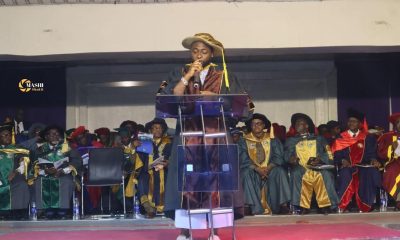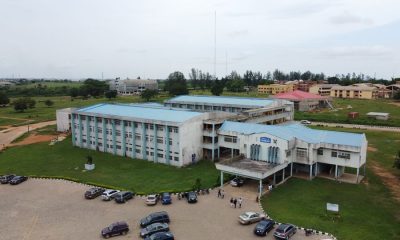At Lagos State University of Science and Technology (LASUSTECH), life as a student isn’t confined to the classroom.
With no official school hostel available, all students; from freshers to returning students, are left to navigate the challenges of off-campus living.
From rent stress to lecture pressure and balancing a social life, the LASUSTECH student experience is a test of real-world survival.
To understand how students are coping, I spoke to both new and returning students about their experiences with housing, food, academics, and life beyond the books.
Every LASUSTECH student starts with one major task, which is finding a place to stay.
Abraham, a 100-level Bio and Agricultural Engineering student, shared his struggle.
“I came from Ogun State, and I didn’t know any area in Ikorodu. It took my parents and me almost two weeks to find a place that was safe and affordable. I now stay in a mini-flat with two other boys and we split the bills.”
Ramot, a 300-level Food Science and Technology student, has changed houses three times since she was a fresher.
“The rent keeps increasing every year, and some landlords don’t care about students. You have to be smart. Find a place early and make sure it’s close to school so you don’t waste money on bikes every day.”
Classes here move fast. If you miss one lecture, it feels like you missed the whole course. I had to learn quickly to take my own notes and ask questions after class.

Without campus meal plans, students rely on local food vendors or their own cooking skills.
Zainab, a 200-level Mass Communication student, explained her routine:
“I buy food from Yinku’s canteen almost every afternoon. On weekends, I cook beans or noodles to save money.”
For many, managing food expenses is just as stressful as paying rent. Tolu, a fresher, said:
“I didn’t realize food would take so much money. Now I plan what to eat every day and make a shopping list weekly so I don’t overspend.”
Adapting to the academic system is another challenge, especially for freshers used to structured secondary school schedules.
A 100-level student confessed:
“Classes here move fast. If you miss one lecture, it feels like you missed the whole course. I had to learn quickly to take my own notes and ask questions after class.”
A semi-finalist student in the Computer Science department gave this advice:
“Start reading early. LASUSTECH isn’t hard if you’re consistent. Also, connect with your seniors for past questions—they really help.”
Living off-campus can be isolating, especially for students who know no one in town. But student clubs, religious fellowships, and departmental associations provide ways to connect.
A 200-level Mass Comm student said:
“I joined the press club in 100 level and met people who are now like family. It helps to get involved. You won’t feel lonely, and you’ll get useful information too.”
Hadiza, a fresher in Mass Communication, added:
“I didn’t know anyone when I came, but my roommates introduced me to some friends, and I’ve started attending campus events. It makes the experience better.”
While many LASUSTECH students are learning to survive the off-campus lifestyle, it doesn’t come without stress. From high rent and lack of security, off-campus living presents serious challenges, especially for new students unfamiliar with the Ikorodu environment.
In consideration of these struggles, students are pleading with the school management to prioritise and complete the ongoing hostel project.
Having a proper school hostel would not only ease the accommodation crisis but also create a more secure, focused, and supportive learning environment.
As one student put it: “We just want a place to call home on campus, to learn better, rest better, and feel safer.”























